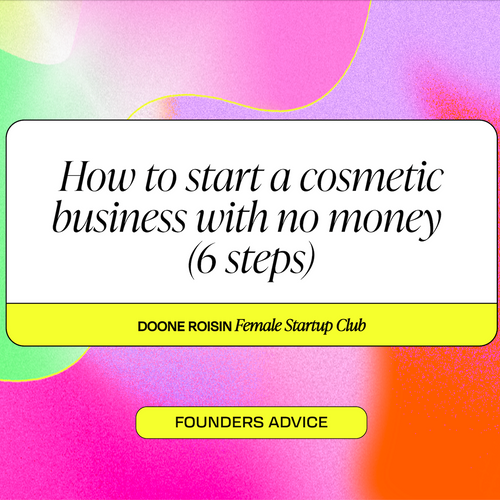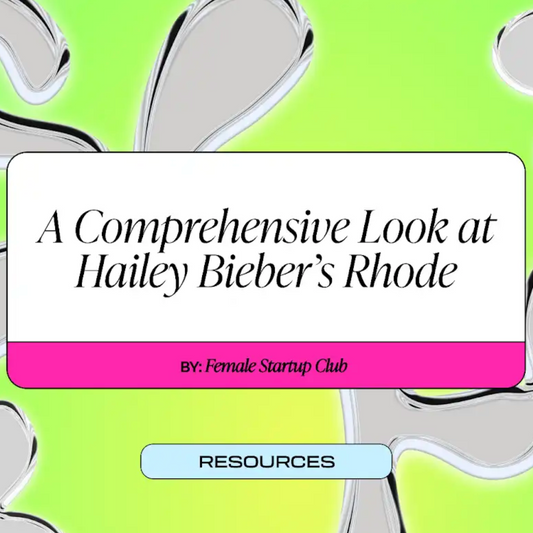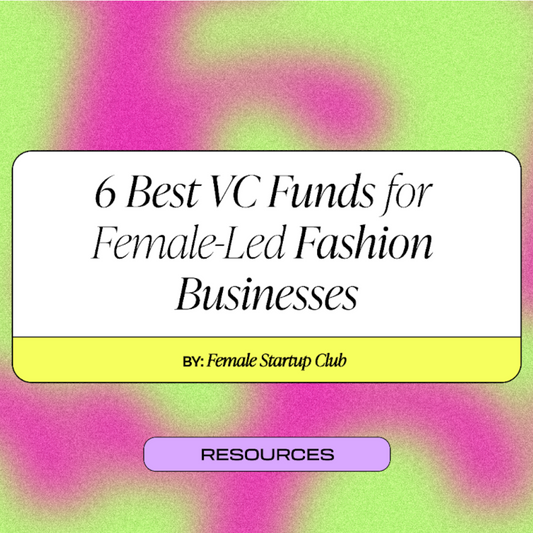Joining me on today’s show is Jordan Schenck - Co-Founder and CMO of Sunwink.
Sunwink is a plant powered wellness company for the masses. Their first products to market are a suite of sparkling tonics that have functional benefits from the superfoods and superherbs within and taste delicious.
In this episode we’re covering so much of the good stuff, like how Jordan came to be part of this project in the first place after heading up the marketing for Impossible Foods, the critical importance of branding and brand building and her key advice for women who have a big idea.

From navigating the complexities of founding a company to the surprising demographics of their customer base, these insights are SO relatable and filled with real-life lessons for anyone interested in building a brand.
The Founders' Dilemma
When Jordan first joined Sunwink, one of the most pressing questions was how to equitably split the company with her co-founder, Eliza. Having received angel investment and established pricing, it was crucial for both founders to have honest conversations about their roles and contributions. Jordan emphasized that discussing what feels "whole" to each founder is essential for a healthy partnership. They recognized that it wasn’t just about financials; it was about valuing each person's journey and contributions.
“We had to figure out what felt right based on where Eliza was at that time versus the potential value I would bring. It’s common for early-stage companies to navigate these waters,” she explained. And they did it through open and productive discussions that laid a solid foundation for their partnership.
Building Brand Awareness
Before Jordan joined, Eliza focused on product testing and development. With no big marketing push, Eliza took a grassroots approach, leveraging small retail channels and live demos to gather real-time feedback. It was a raw, honest way to learn what consumers wanted and what worked.
“We set up demos in stores, and I love that Eliza had people try the product right there. She’d hear their reactions firsthand, whether positive or negative,” Jordan reminisced. This hands-on approach allowed them to discover their product-market fit organically.
When Jordan stepped in, they planned a standout launch at Expo West, where they created a visually stunning booth. This event caught the attention of Whole Foods, marking a significant turning point for Sunwink. Jordan shared how this partnership propelled their growth and took the brand to the next level.
Getting Scrappy
In those early days, Sunwink focused heavily on community engagement and grassroots marketing. Jordan recounted, “We did a lot of sampling and community development. It was scrappy, but that’s how we built demand in the market.” They didn’t have the luxury of a massive digital ad budget, so they relied on in-person events and sampling to introduce their product.
However, the game changed when they launched their online business in early 2020. Jordan noted, “It allowed us to scale awareness in ways we hadn’t been able to before.” As online sales surged, their e-commerce growth also positively impacted their retail presence, allowing Sunwink to reach new customers across the country.
Navigating Challenges
Like many businesses, the pandemic presented a unique set of challenges. With traditional marketing avenues disrupted, Sunwink had to pivot quickly. “We lost 40% of our food service business almost overnight. It was a stark reminder of how quickly things can change,” Jordan reflected. They shifted focus to online sampling and performance marketing to keep their momentum.
Discovering Their Customer Base
One interesting insight from Jordan’s journey was the evolution of their customer demographics. While Sunwink was designed with millennials in mind, they soon discovered that their products also resonated with older demographics seeking clean, mission-driven options.
Jordan said, “We designed for ourselves, but we found that even consumers in their 40s and 50s were eager for products that align with their values.” This realization broadened their audience and reinforced the importance of staying true to their mission while being open to who their customers might be.
Conclusion
Jordan Schenck’s journey with Sunwink illustrates the power of adaptability and honest communication in entrepreneurship. From equitable partnerships to scrappy marketing strategies, her story offers valuable insights for any founder looking to navigate the early stages of building a brand. As Sunwink continues to grow, it’s clear that their commitment to quality and community will drive their success for years to come.



